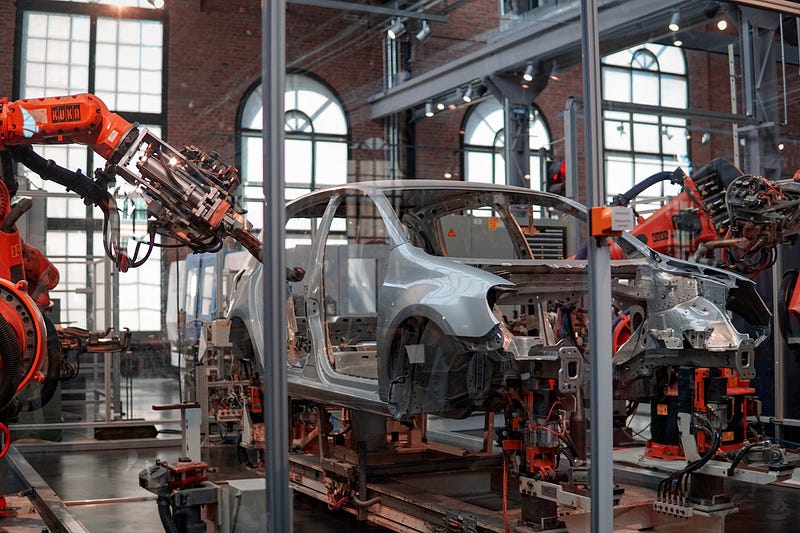A Discussion of Bourgeois Equality Chapter 17 “It is a Truth Universally Acknowledged that even Dr. Johnson and Jane Austen Exhibit the Revaluation”
Dr. McCloskey begins Part 3 of this opus (there are 10 parts!) by delving further into the origination of the ideas that led to the Great Enrichment.
Interestingly, she acknowledges we can better understand the history of ideas that led us to the Great Enrichment if we start at its beginning and work backward.
…I am going to tell the history backward, to answer the questions about causes and conditions implied by each lurch toward the modern world. Backward history is better for analysis, because it focuses sharply on Why. Straightforward narrative from time 0 to present, good for many other purposes, faces the analytic hazard of false smoothness, 0 leading “inevitably” to 1, 1 to 2, and so forth. (p. 151)
Laying out her basic argument for the book, she notes she is trying to answer the question, if poor was normal for all, why did some become rich? Her answer is the change in attitudes towards the bourgeois.
Now in this part of the book, she wants to examine why those attitudes changed.
Answer: The egalitarian accidents of 1517–1789. But why were they important?
Answer: Because earlier times, were fiercely antibourgeois, being holy and hierarchical.
And they were so even though markets and “capitalism” have always existed, contrary to Karl Polanyi. And so, to return from ancient times to our own:
Alarmingly, the clerisy after 1848 came to oppose all this good change. Which is the danger. (p. 152)
Who is Dr. Johnson?
The first of the 2 historical figures in this chapter’s title is Samuel Johnson, (1709–1784), a poet, critic, and playwright. (p. 152)
McCloskey notes he was a writer “on the eve of the Great Enrichment who would be expected to have contempt for money, enterprise, betterment, business, the bourgeoisie.” (p. 152) That was the normal attitude of the aristocracy.
By his time, society had moved from the feudal era where there were definite classes: the peasants, the aristocrats, the church. Now there was a new bourgeois class of craftsmen and tradesmen and people like Johnson who earned an income from writing.
Earning an income by working was looked down upon by the aristocracy and that is the point McCloskey is making — society needed to change its thinking so that ideas like working hard, earning money, and innovating new products were valued in order for the Great Enrichment to begin.
Why is Jane Austen included here?
McCloskey notes that Austen’s novels primarily focused on the “smallish landowners and their pastors, the lesser rural gentry” (p. 154)
She is not writing about the top aristocrats. Nor does she include the servant class in any meaningful way.
She does include a working farmer, Robert Martin, in Emma, but is not terribly favorable to him though it could be argued he is presented more favorably in the end. (p. 156) And she does have some characters who earned wealth in the trades, like Mr. Gardiner of Pride and Prejudice.
Within the tiny class that she examines, an antitrade snobbery is commonplace, even among the major characters when ethically misled. But the snobbery is regularly spoofed. (p. 158)
Austen herself is essentially from the “tiny class” she writes about. Her father was in the clergy but his family was on the fringes of the landed gentry. Her brother, Henry, who she lived with off and on earned his living as a banker.
She did not consider business shameful yet she shows that as a common attitude in many of her characters, while simultaneously letting the readers see the contradictions and hypocrisy often displayed.
In other words, Austen was not a pro-bourgeois writer, but neither was she anticapitalist, no more than the man she called, “my dear Dr. Johnson”…True, no celebration can be found in Austen of entrepreneurship or the thrusting enterprise of new men…But neither was she opposed to calculation or trade. (p. 159)
Conclusion
By focusing on these two writers at the time the Great Enrichment is beginning, McCloskey is able to show a growing tolerance to the shifting social structure of a rising business class.
For the Great Enrichment to take off, society needs to support the ideas of working for money, admiration of innovation, and an acceptance of creative destruction that comes from innovation. That is, society needs to value the idea that there is dignity to the bourgeoisie in order to unleash a wave of new ideas that will result in the Great Enrichment
Reference: McCloskey, Deirdre Nansen, 2016. “‘It is a Truth Universally Acknowledged that even Dr. Johnson and Jane Austen Exhibit the Revaluation,” Chapter 17 of Bourgeois Equality, The University of Chicago Press.




